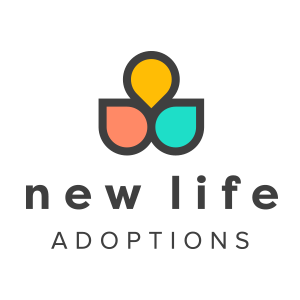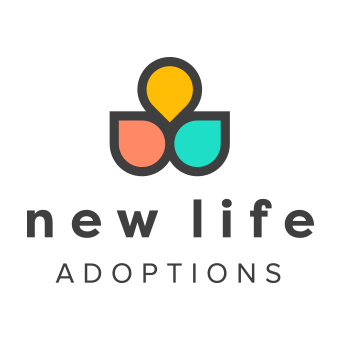You gave birth and you decided to place your baby for adoption. Your body will still produce breastmilk two to five days after your delivery. This is the natural process your body goes through, and now you have a decision to make. If you have not considered it yet as part of your birth and adoption plans, now is the time to decide whether you want to breastfeed baby while in the hospital, to pump to provide breastmilk to baby and the adopted family, to donate your breastmilk to a Breastmilk Bank for babies in the Neonatal Intensive Care Unit (NICU), or try and stop the production of your milk supply. This is a very personal choice and there is no right or wrong option.
This is a very personal choice and there is no right or wrong option.
When it comes to making this decision, you should explore all of your options. Remember to evaluate your feelings and know the pros and cons so you can make an informed decision. I am sure you have heard of the amazing benefits of breastmilk for babies. But have you heard of the benefits for you?
Benefits for You
The stimulation from breastfeeding or pumping produces the hormone oxytocin which is also called “the love hormone.” Emotionally, it can give you a sense of happiness and connection. Physically, it helps your uterus shrink back to its normal, small size in your pelvis, and helps decrease your bleeding. Other benefits it can give you are a decreased risk of breast cancer and ovarian cancer in the future. It can assist with weight loss of the pregnancy weight when combined with a healthy diet. These benefits can occur no matter how long you breastfeed or pump for.
Knowing that breastfeeding and pumping can be very intimate and the hormones released encourages bonding, it can make this decision difficult for moms placing for adoption. Again, there is no right or wrong answer. If you decide this is not something you desire, you can still do skin-to-skin and bottle-feeding to bond with your baby.
Impact on Mood and Emotions
Of note, it is not uncommon to have feelings of sadness or depression when you stop the lactation process. You may also experience irritability, anxiety, or mood swings. There is a lot you are trying to process right now and hormones are playing a huge role as well.
Prolactin is a hormone that your body creates for milk production and is called the “happy hormone,” as it makes you feel relaxed, calm, in a satisfied state and sometimes sleepy. Oxytocin, “the love hormone” mentioned earlier, is used to excrete the breastmilk from your nipple. When you suppress your milk supply by not breastfeeding or pumping, there is a natural decrease in both these hormones. This can make one feel sad, depressed, anxious, etc.
If you have a history of depression, this is your first pregnancy, or you are placing for adoption, you may be at increased risk to develop depression at this time. There are also emotions of loss or grief as you feel the pressure of the milk in your breasts, but do not have the baby to feed. All of these feelings and emotions are completely normal. They typically last a few weeks and are typically mild.
Postpartum Mood Disorders
There are 3 kinds of Postpartum Mood Disorders. The most mild are called the ‘blues’ and about 70%-80% of women experience this regardless of their situation. This typically lasts 2 weeks after delivery or stopping lactation. Then there is Postpartum Depression or Postpartum Anxiety which occurs in 1 of 7 women. These are more severe and will likely require outside help. To help tell the difference, with the ‘blues’, the overall feeling is good, happy, content, but still having moments of sadness, grief, and tears. With Postpartum Depression, the underlying feeling is sadness, regret, withdrawal, hopelessness, with only moments of good. With Postpartum Anxiety, the underlying feelings are all the “what if” thoughts, fear, mental paralysis, and inability to carry on daily tasks.
Lastly, there is Postpartum Psychosis, and it is very rare and only happens in less than 1% of women. However, if this does occur, help is needed immediately. Symptoms of Postpartum Psychosis include, but are not limited to, hallucination, confusion, paranoia, delusions, or thoughts of harming yourself or others.
If your feelings and emotions are lasting more than 2 weeks or are interfering with your day to day life, then it is time to seek help.
Be sure to monitor yourself and your mood whether or not you decide to provide breastmilk to baby. It is not an easy decision and your hormones will affect you when you stop your breastmilk supply. If your feelings and emotions are lasting more than 2 weeks or are interfering with your day to day life, then it is time to seek help. If you are experiencing any thoughts of self-harm, harming others, or suicide, please call 911 or call or text the National Suicide Prevention Lifeline at 988.
This post is part one in a three part series. Read part two here. Part three is coming soon!
Sources:
Bonyata, K., Flora, B., & Yount, P. (2018, January 5). Sadness and depression during (and after) weaning. KellyMom. https://kellymom.com/ages/weaning/wean-how/depression-and-weaning/
Lloyd, S. (2016, February 5). 6 practical tips for dealing with lactation after placement. Adoption.com. https://adoption.com/6-practical-tips-for-dealing-with-lactation-after-placement/
Lloyd, S. (2016, August 10). 5 reasons birth moms should consider breastfeeding before placement. Adoption.com. https://adoption.com/5-reasons-birth-moms-should-consider-breastfeeding-before-placement
Smith, A. (2014, November). Breastfeeding and postpartum depression. Breastfeeding Basics. https://www.breastfeedingbasics.com/articles/breastfeeding-postpartum-depression
About the Author:
 Amanda Little, RN, CLC, has been a nurse for 14 years, ten years of which have been in the Postpartum Unit, Labor and Delivery Unit, and Level 3 NICU at Mayo Clinic, in Rochester, MN. She has now been at First Care Pregnancy Center, in Rochester, MN for 3 years. She achieved her Certified Lactation Counselor Certification in 2014 and has more than 10,000 hours of hands-on lactation support experience. Amanda was recognized with the Mayo Clinic Nursing Individual Achievement Award in 2019 in the Department of Obstetrics, Gynecology, and Neonatology Specialties at Mayo Clinic, in Rochester, MN. Amanda has also been a Perinatal Educator since 2020. Amanda has a passion to support all woman and families through the pregnancy, birthing, parenting, lactating, adoption, grieving, healing, and growing stages of life. Amanda also loves to be an “Auntie” to many children in her community and church.
Amanda Little, RN, CLC, has been a nurse for 14 years, ten years of which have been in the Postpartum Unit, Labor and Delivery Unit, and Level 3 NICU at Mayo Clinic, in Rochester, MN. She has now been at First Care Pregnancy Center, in Rochester, MN for 3 years. She achieved her Certified Lactation Counselor Certification in 2014 and has more than 10,000 hours of hands-on lactation support experience. Amanda was recognized with the Mayo Clinic Nursing Individual Achievement Award in 2019 in the Department of Obstetrics, Gynecology, and Neonatology Specialties at Mayo Clinic, in Rochester, MN. Amanda has also been a Perinatal Educator since 2020. Amanda has a passion to support all woman and families through the pregnancy, birthing, parenting, lactating, adoption, grieving, healing, and growing stages of life. Amanda also loves to be an “Auntie” to many children in her community and church.




